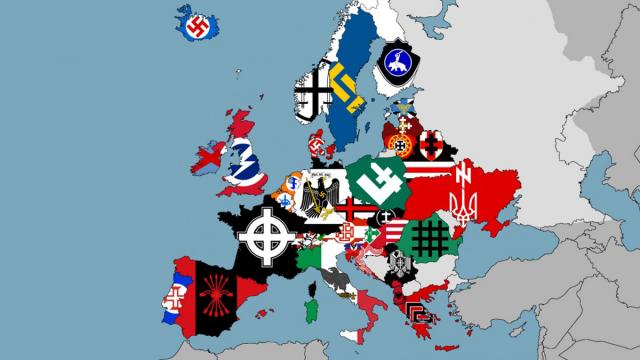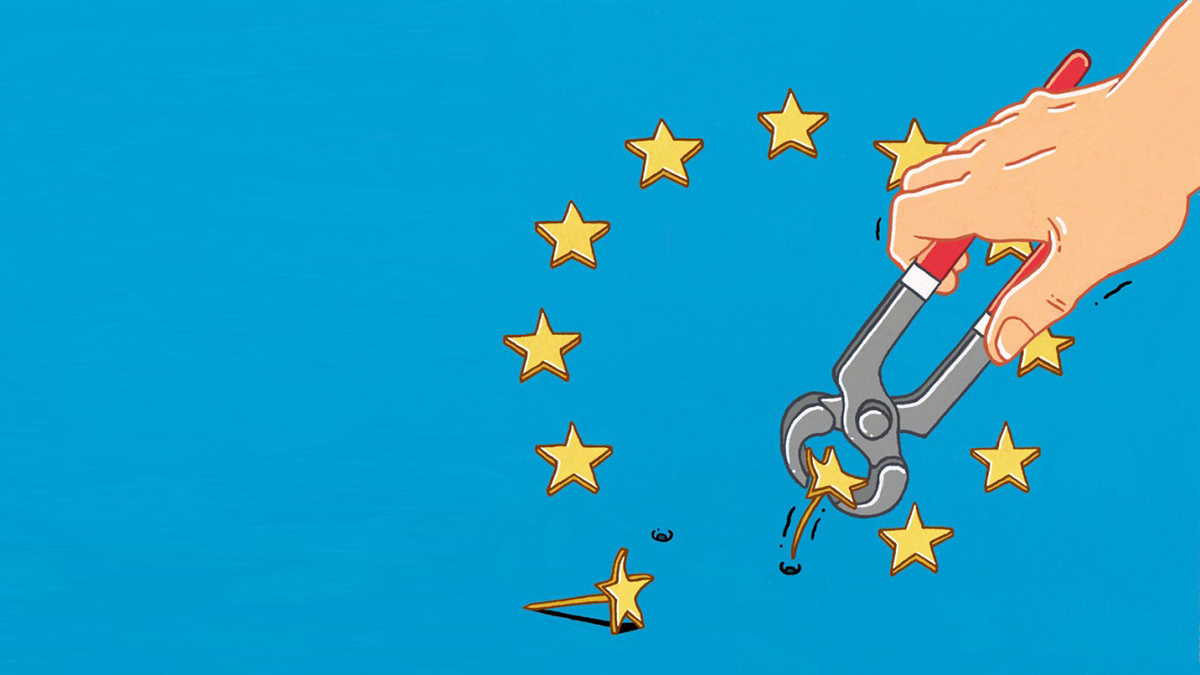
Austria in October will repeat its recent presidential election in which the far-right Freedom Party’s Norbert Hofer lost by nearly 31,000 votes to independent Green candidate Van der Bellen. If the revote – called by the Constitutional Court, due to postal vote irregularities – changes the result, Hofer would be the first far-right nationalist to take power in any European Union country since Spain’s General Francisco Franco, who died in 1975.
But Hofer's ascent is not isolated. Far-right nationalists are marching on a continent facing multiple crises. He just happens to be on the ascent in a country where voters appear willing in a new way to gamble with history.
Austrian presidents are nominally figureheads, but Hofer calls for increased influence in the role, not least applying the presidential veto to dissolve the Parliament. He asserted: "You will be surprised by what can be done by a president."
His party are also predicted to break through in forthcoming Parliamentary elections, which could end 60 years of two-party politics in Austria. Some mainstream voices assert Hofer is the “friendly face of the Freedom Party” and a “centrist.” The German magazine Der Spiegel even described him as “doe-eyed.”
But sympathetic reporting masks the party’s fascist underpinnings. The Freedom Party was first led by former Nazis SS officers after the Second World War. Its recent agenda is anti-immigration, and its announcements are loaded with fascist undertones. For instance, Hofer makes a big point that he carries a handgun “as a consequence of immigration.” The party’s rhetoric regularly dehumanizes refugees and migrants, portraying them as criminals and terrorists. It has also adopted an anti-European Union standpoint that is echoing across the continent among the growing racist right.
A Continental Swing to the Right
Ironically, right-wing nationalists are simultaneously engaging in pan-European solidarity with each other. Hofer has said the Brexit decision could encourage a similar Austrian-Exit. Likewise, Marine Le Pen from France’s National Front is calling for a French referendum. She and her far-right party are expected to compete strongly in France’s presidential election next year.
Other key examples of emerging far-right parties capitalizing on anti-E.U. sentiment are the True Finns, a junior coalition partner in the Finnish government; the openly fascist Golden Dawn, Greece’s third largest party; the Sweden Democrats, who appear poised to become their country’s third biggest party; and Jobbik, in Hungary, which won 20% of votes in 2014 on a neo-Nazi platform that included creating detention camps for Roma people.
The far-right attack on the E.U. creates an acute dilemma for the continent's progressive left. The European super-state clearly has draconian anti-democratic aspects, as shown by the financial devastation of Greece. It has also pushed a violent and inhumane refugee policy, leading thousands of refugees to drown in the Mediterranean and hundreds of thousands more facing immigration detention. Yet the most prominent critics of E.U. institutions – the far-right – assert it is “too progressive.”
Europe’s political landscape is of course distorted by a media largely captured by corporations. This is true even of state television. For instance, a recent BBC broadcast showed a man openly showing off Swastika tattoos, without challenging the Nazi ideology. This media attitude normalizes such views, in the way that including more fascist and racist politicians in broadcasts increases the public’s tolerance to their message.
On top of this, mainstream media across the continent have created a moral panic about migration, and mainstream politicians have followed suit by pandering to the anti-immigrant rhetoric – and oftentimes driving it. Austria is not alone in having a party supposedly from the left that has attacked refugee and migrant rights. Having long supported the neoliberal consensus, Austria's Social Democrats' popularity is now at rock bottom.
The close gap of Austria’s vote also shows how the campaign has divided the country. Election day polling suggests over 80% of working class voters opted for Hofer, whereas the same numbers of graduates went for his opposition, the Green candidate Alexander Van der Bellen. Broadly, metropolitan areas turned out for the Green, whereas rural areas backed the far-right.
Similar demographic trends are evident in the Brexit vote, and in the U.S. reflecting support for Donald Trump. The same happened last year in Finland, and the Sweden Democrats formed from a neo-Nazi sect, repeating the pattern of far-right populism gaining the most ground in disenfranchised small towns with high unemployment.
As many have noted, the current racist propaganda has alarming similarities with 1930s fascism, such as the UKIP poster that emulated a Third Reich film. The primary difference is that recent far-right nationalists have focused on new victims to scapegoat – Muslims – rather than Jews. As Hofer has said, “Islam has no place in Austria.”
How Did We Get Here?
The re-emergence of Europe's far-right coincides with the economic fallout from the 2008 financial crash and bank bailouts. Greece shows the strongest correlation, with the rise of Golden Dawn occurring as a direct response to the crash and E.U. debt policy. Members of Golden Dawn are openly neo-Nazi and extensively violent, but despite this they continue to be the country's third biggest party.
There are, however, also counter examples in which socio-political conditions have not produced neo-fascism but rather a new wave of progressive parties, such as in Spain and Iceland. Both of those countries were devastated by the economic crisis, yet their responses have been to head toward potentially sweeping democratic transformations.
This underlines a basic fact: The far-right’s march across Europe is anything but consistent. In Austria’s case, the trigger point for Hofer’s success was 1) the rebranding of his party as “centrist,” and 2) convincing voters that government has lost control of its border policies in the face of an unprecedented migration of peoples. The current rise of demagogues, in Europe and America, is a result of a political and economic climate more unstable today than it has been for decades. Clearly, the people are demanding change. But what kind of change they get, and whether a majority votes for a fascist response to the crises, remains to be seen.
3 WAYS TO SHOW YOUR SUPPORT
- Log in to post comments













Comments
Jamie replied on
Material Support Vs. Appologetics
This article is very one sided, considering the leading neo-liberals in Europe financed, trained, and armed Nazi battalions in the Ukraine to overthrow a democratically elected leader two months before an election. This was an EU approved takeover, yet the author acts like the EU is a force against fascism! After the coup, Obama placed Joe Biden's son, Hunter, on the board of the largest gas company in the Ukraine.
https://consortiumnews.com/2015/06/12/u-s-house-admits-nazi-role-in-ukraine/
The West, through the EU and the USA, materially supported openly declared fascists in eastern Europe, yet this article ignores their material support and instead wallows in ideological similarities to fascism among right-wing politicians and their long-ago historical links to the SS. Whereas, the Azov Brigades in the Ukraine, openly fascist, waving not only Nazi flags but confederate flags as well, are given a pass by the author.